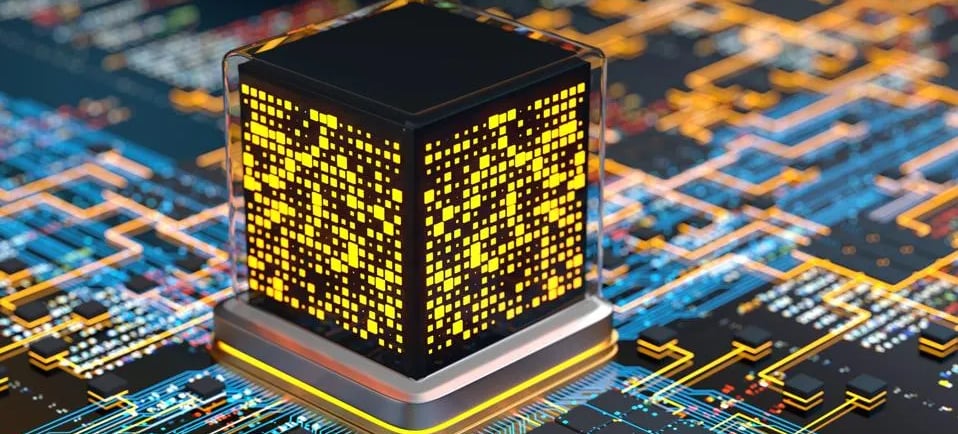items chosen one by one so you have the best option and save money on amazon (Links in articles)
The Rise of AI-Powered Coding Assistants: Are Developers Becoming Obsolete?
In the last few years, the software development landscape has undergone a radical transformation. At the center of this disruption are AI-powered coding assistants — intelligent tools that can write, review, debug, and even optimize code with minimal human intervention. As these technologies mature, a controversial question emerges: Are human developers becoming obsolete? In this article, we’ll explore what AI coding assistants are, how they work, their potential impact on the tech industry, and why developers shouldn’t panic — at least not yet.
6/11/20253 min leer


What Are AI Coding Assistants?
AI coding assistants are advanced software tools that leverage artificial intelligence, specifically natural language processing (NLP) and machine learning (ML), to help programmers write better code faster. Some of the most popular examples today include:
GitHub Copilot (powered by OpenAI’s Codex)
Amazon CodeWhisperer
Tabnine
Replit AI
Google Gemini Code Assist
These tools can autocomplete code, suggest solutions based on context, generate boilerplate code, and even convert natural language prompts into functional code snippets.
For example, a developer might type:
"Create a function to sort an array of integers in ascending order."
And the AI assistant would instantly generate an efficient sorting function in the desired programming language.
LINK: Amazon Echo Show 10 (newest model), HD smart display with premium sound, motion and Alexa, Charcoal
How Do They Work?
The magic behind AI coding assistants lies in large language models (LLMs) trained on massive datasets of public code repositories, documentation, forums, and tutorials. These models learn the patterns, logic, and syntax of various programming languages.
Technologies like OpenAI Codex, Google Gemini, and Anthropic’s Claude analyze millions (even billions) of lines of code, enabling them to predict what a developer intends to write next. The more context they have, the more accurate and relevant their suggestions become.
In many ways, these assistants act like advanced autocomplete engines on steroids.
Benefits of AI-Powered Coding Assistants
AI coding assistants offer a range of benefits that make them increasingly attractive to individual developers, startups, and large enterprises alike:
1. Faster Development Cycles
Developers can generate complex functions or repetitive code blocks in seconds, dramatically speeding up software delivery timelines.
2. Reduced Human Error
AI can catch common mistakes, suggest optimized solutions, and prevent many bugs before they reach production.
3. Enhanced Learning for New Developers
Junior programmers can quickly learn best practices and coding patterns by observing AI-generated code suggestions.
4. Cost Efficiency
Companies can reduce man-hours spent on mundane tasks like writing boilerplate code, freeing up engineers to focus on higher-level problem-solving.
5. Language Agnostic Assistance
AI coding assistants support multiple languages (Python, JavaScript, C#, Java, Go, etc.), allowing teams to work more flexibly across different technology stacks.
Amazon Echo Show 10 (newest model), HD smart display with premium sound, motion and Alexa, Charcoal
Potential Risks and Limitations
While AI coding assistants offer incredible advantages, they are not without significant concerns:
1. Security Vulnerabilities
Poorly trained AI may generate insecure code that is vulnerable to exploits, especially if the training data includes bad practices.
2. Intellectual Property Issues
Some LLMs are trained on publicly available code, raising legal and ethical questions around code ownership and licensing.
3. Overreliance and Skill Degradation
If developers become too dependent on AI assistance, they may lose critical problem-solving and debugging skills over time.
4. Limited Context Understanding
Even the most advanced AI struggles with deeply contextual business logic, domain-specific requirements, or unique system architectures.
5. Bias in Training Data
AI models can inadvertently reproduce biases present in their training data, leading to problematic outputs.
Amazon Echo Show 10 (newest model), HD smart display with premium sound, motion and Alexa, Charcoal
Will AI Replace Human Developers?
The short answer is: not anytime soon.
While AI coding assistants are powerful, software development is far more than just writing code. It involves:
Architectural design
System integration
Business logic implementation
Security and compliance considerations
Stakeholder communication
Continuous optimization
AI is excellent at handling low-level, repetitive, and predictable tasks, but it still lacks critical thinking, creativity, ethics, and contextual reasoning — all essential skills that human developers bring to the table.
In reality, we’re more likely to see a hybrid model emerge: developers working alongside AI tools to boost productivity, reduce errors, and accelerate innovation.
The Future of Software Development
As AI coding assistants continue to evolve, we can expect several future trends:
Deeper IDE Integration: Seamless integration with popular development environments (VSCode, IntelliJ, Eclipse, etc.) will become the norm.
Better Security Features: AI will be trained to prioritize secure coding practices, reducing vulnerabilities at the source.
Team Collaboration Enhancements: AI assistants will help coordinate larger teams by suggesting consistent code styles, design patterns, and architectural decisions.
Customized AI Models: Companies may train proprietary AI models on their own codebases for highly specialized assistance.
Multi-Modal AI Capabilities: Combining text, code, diagrams, and natural language instructions for more comprehensive development support.
Conclusion: Embrace, Don’t Fear
AI-powered coding assistants represent a seismic shift in how we write software, but rather than replacing developers, they are reshaping their roles. Those who embrace these tools and adapt will likely become more efficient, valuable, and in-demand.
In many ways, developers of the future will function like AI orchestrators — using their expertise to guide, verify, and refine AI-generated solutions, while focusing on the high-level architecture and human-centered aspects that AI cannot replicate.
Amazon Echo Show 10 (newest model), HD smart display with premium sound, motion and Alexa, Charcoal

